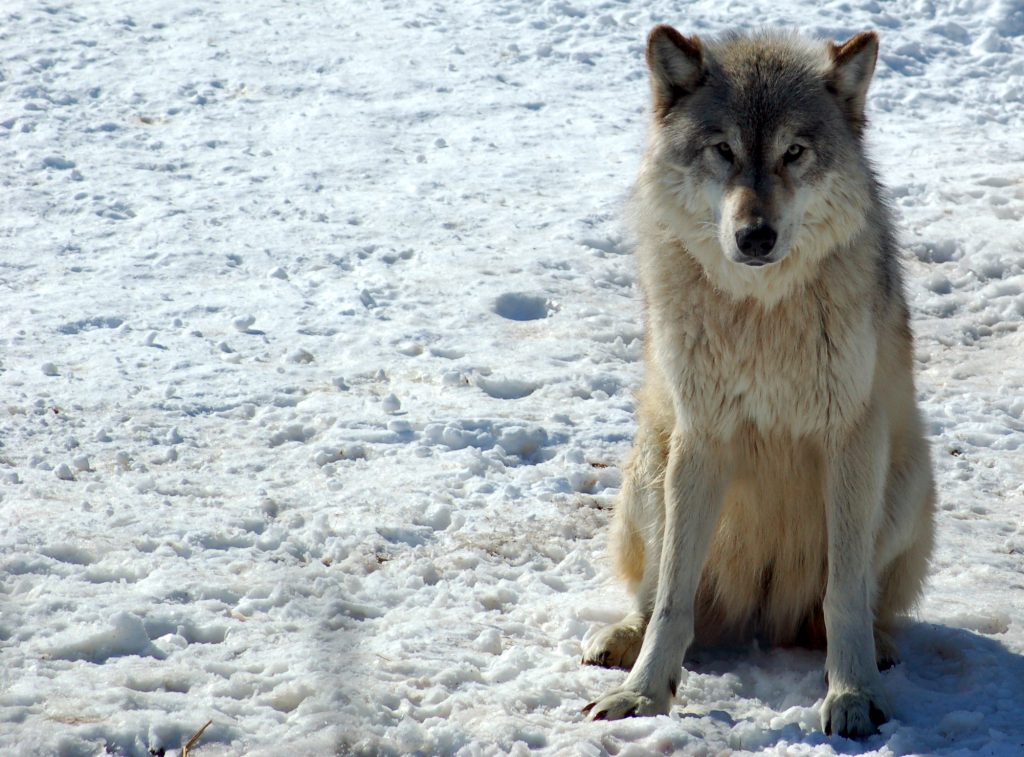The Wisconsin Conservation Congress Is Broken
Three-fourths of state citizens, the non-hunters, getting stonewalled by group.

Gray wolf. Photo by Derek Bakken /( CC BY 2.0)
In the past week the Wisconsin Conservation Congress (WCC) held 72 in-person meetings across the state to elect new county delegates. These meetings are important as they served as the first opportunity people had to vote for their local county delegates since the start of the COVID-19 pandemic.
In 2020, the WCC was forced to shift to Zoom for its meetings, which allowed for an entirely new group of citizens to become engaged in this previously insular group. It was eye-opening to many Wisconsinites unfamiliar with the Conservation Congress.
The Wisconsin Conservation Congress was created in part by Aldo Leopold and other conservationists in 1934. According to the WCC website, it is “the only statutory body in the state where citizens elect delegates to advise the Natural Resources Board and the Wisconsin Department of Natural Resources on how to responsibly manage Wisconsin’s natural resources for present and future generations. The Congress accomplishes this through open, impartial, broad-ranged actions [emphasis added].”
Unfortunately for animals, humans and Wisconsin ecosystems, nothing could be further from the truth. Despite that laudable vision, today wild animals in our state live at the mercy of a small special interest group, consumptive users – hunters and trappers – leaving little recourse for recognition of public values increasingly shifting toward consideration of the wellbeing of animals and, therefore, non-consumptive outdoor recreation.
Recent surveys show that only a minority of Wisconsinites engage in hunting – 27% according to the WDNR, and only 17% according to research scientists. Meanwhile, 2 out of 3 Wisconsinites — more than 66% — engage in non-consumptive activities such as hiking and nature observation, and 75% are interested in engaging in such activities in the future. Moreover, the increasing number of non-consumptive users disagree with lethal control of wildlife. That proportion would surely increase if asked about recreational killing of wildlife, which is pervasive throughout the state in many forms, including through macabre wildlife killing contests.
Increasingly, the WCC has been receiving input and participation from non-consumptive users, in the congress’ Spring Hearing and in its advisory committees. The WCC has betrayed its purpose by resisting that input, however, to the extent that the body can no longer be counted on to represent and convey the broad public’s input to the Natural Resources Board and Wisconsin Department of Natural Resources.
WCC Committees, especially those related to wildlife, have demonstrated a pattern of undemocratic, anti-science behavior, captured by narrow values and consumptive users. Last year, wildlife committees such as the “Fur harvest” (the name says it all), wolf and bear committees rejected numerous resolutions, supported by the majority of the public, calling for increased restrictions in time, methods and activities for killing wildlife. While rejecting dozens of resolutions to protect wildlife, the committees advanced those to expand bobcat hunting, beaver trapping and using infrared lights to hunt predators.
But the lack of democratic process does not stop there.
WCC’s district leaders recently changed their Code of Procedure to remove a rule that allowed resolutions that passed two consecutive years in a row in the same three counties to advance to the state level questionnaire regardless of committee support. That rule was the last resort for citizens to bypass the rejection of citizen resolutions by biased wildlife committees. Congress leaders made the change in January to block important qualifying resolutions favorable to wildlife, supported by thousands of citizens, from being included in the survey. They included a ban on wildlife killing contests and bans on hounding, chocolate bear bait, and night hunting for wolves and coyotes.
The WCC is actively resisting democratic, organizational change. WCC district leaders decided to stop accepting any citizen resolutions related to changes in the body’s process, procedure or organization. This is an explicit attempt to ban citizens’ recent efforts to broaden and democratize the WCC through resolutions that would have allowed for virtual meetings, online elections, district map representation and committee term limits.
The only way to influence and change the WCC is through massive public participation in the congress and education about its shortcomings. Many Wisconsinites don’t even know the WCC exists or what it does, and the congress seems to like it that way. To challenge the body’s current lack of democracy, we need broad public participation by people who will join the WCC as volunteer delegates in their counties and who will participate in Spring Hearings and committee meetings.
Wildlife is not the province of an increasingly small proportion of consumptive users, but the WCC enshrines that group’s voice and desires at the expense of the broader public. Enshrining fringe-hunting practices such as hounding, killing contests and hunting predators such as coyotes, wolves and bears harms not only animals, but Wisconsin’s ecosystems and their benefits to humans. The WCC’s undemocratic behavior betrays its role as a representative of all citizens. All Wisconsinites deserve an equitable voice in wildlife policies.
The Wisconsin Conservation Congress is broken was originally published by the Wisconsin Examiner.
Francisco J. Santiago-Ávila, PhD, is the Heartland Rewilding Science and Conservation Manager for Project Coyote and The Rewilding Institute, based in Madison, Wisconsin.
Amy Mueller is a wildlife advocate based in Ottawa, Wisconsin.
Op-Ed
-
Unlocking Milwaukee’s Potential Through Smart Zoning Reform
 Jul 5th, 2024 by Ariam Kesete
Jul 5th, 2024 by Ariam Kesete
-
We Energies’ Natural Gas Plans Are A Mistake
 Jun 28th, 2024 by John Imes
Jun 28th, 2024 by John Imes
-
Milwaukee Needs New Kind of School Board
 Jun 26th, 2024 by Jordan Morales
Jun 26th, 2024 by Jordan Morales






















Another example of how Vos and company are destroying democracy in Wisconsin. With the blatantly undemocratic gerrymandered districts, they ensure that a wealthy minority controls government. Then they use veiled threats to diminish the voices of those who aren’t in agreement. We now are on verge of fascism.